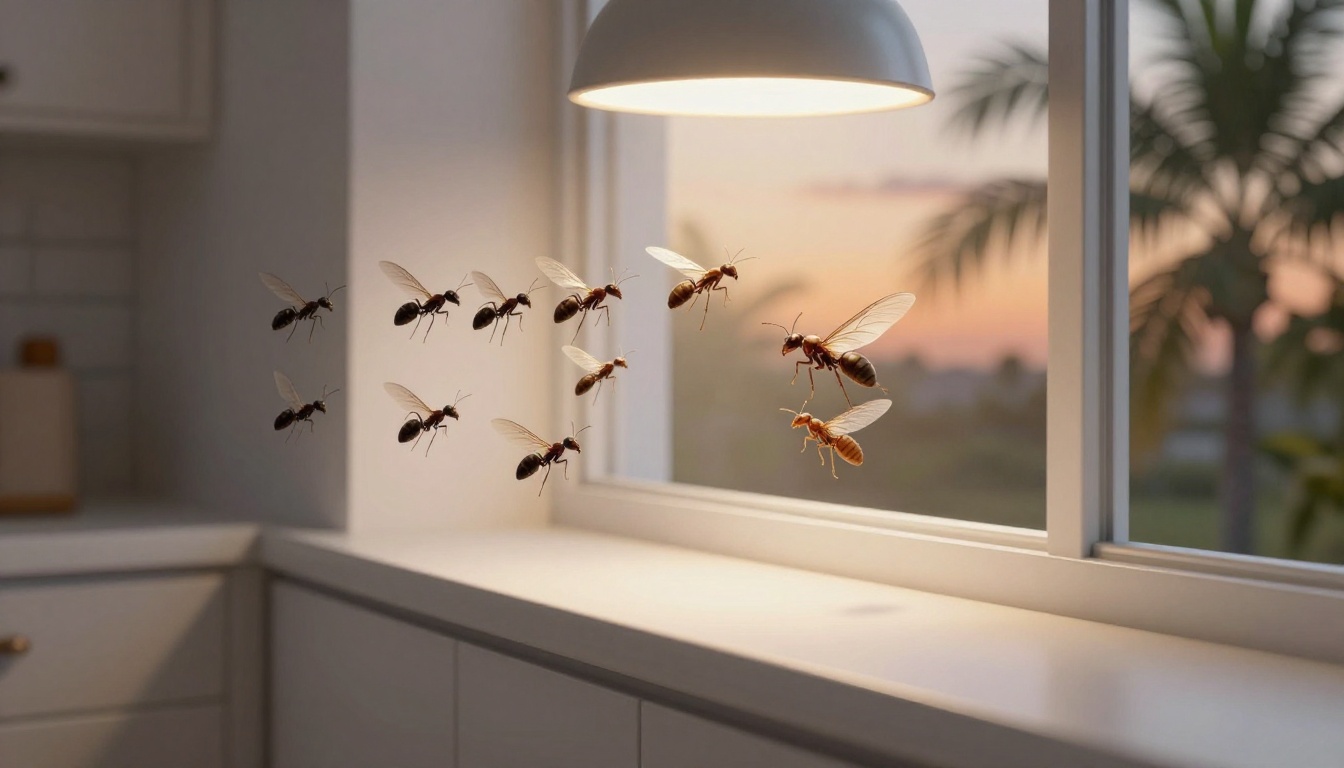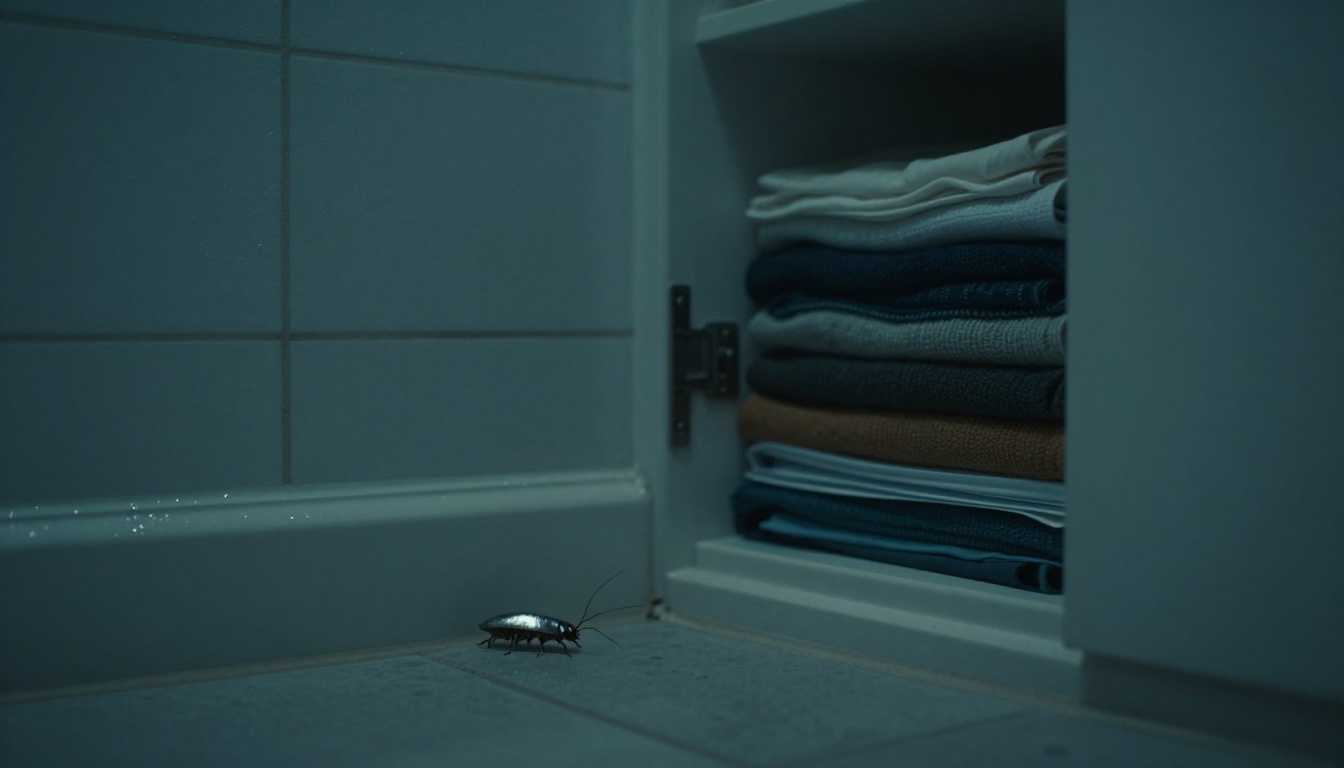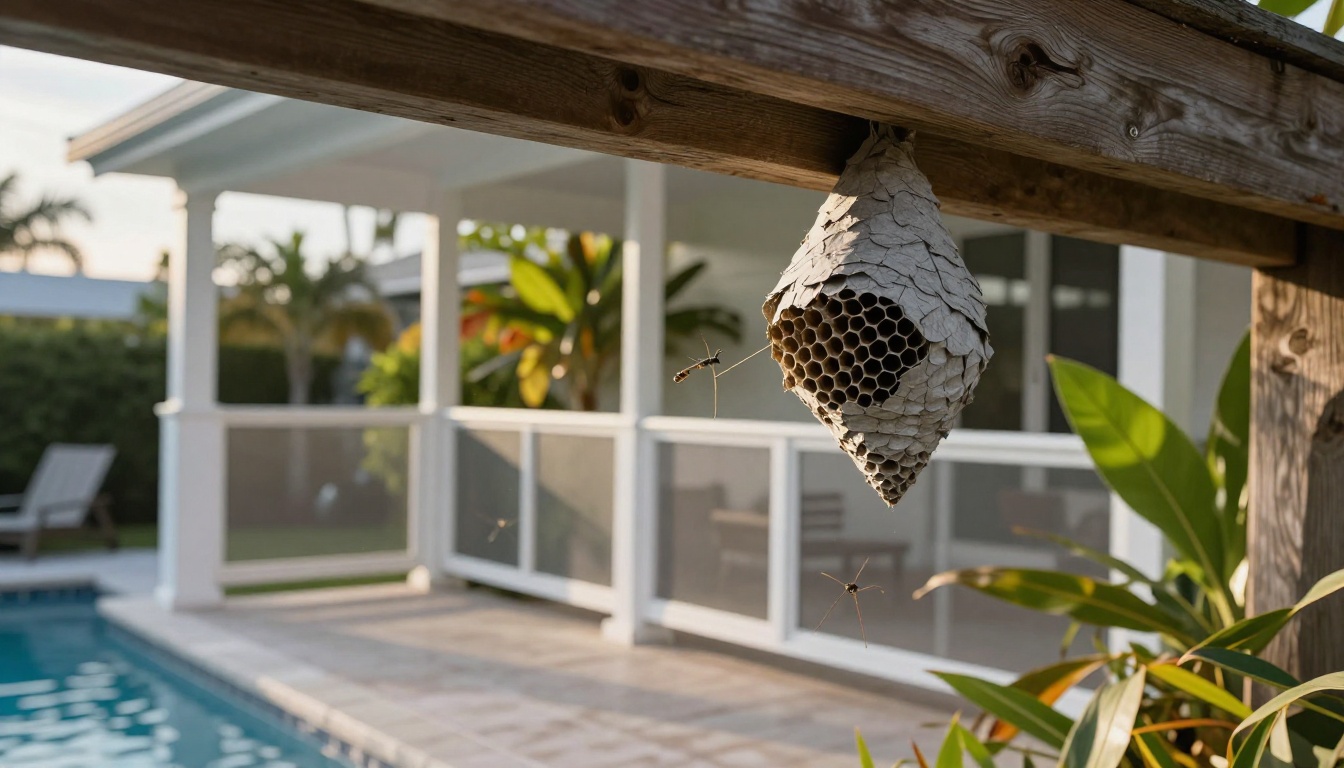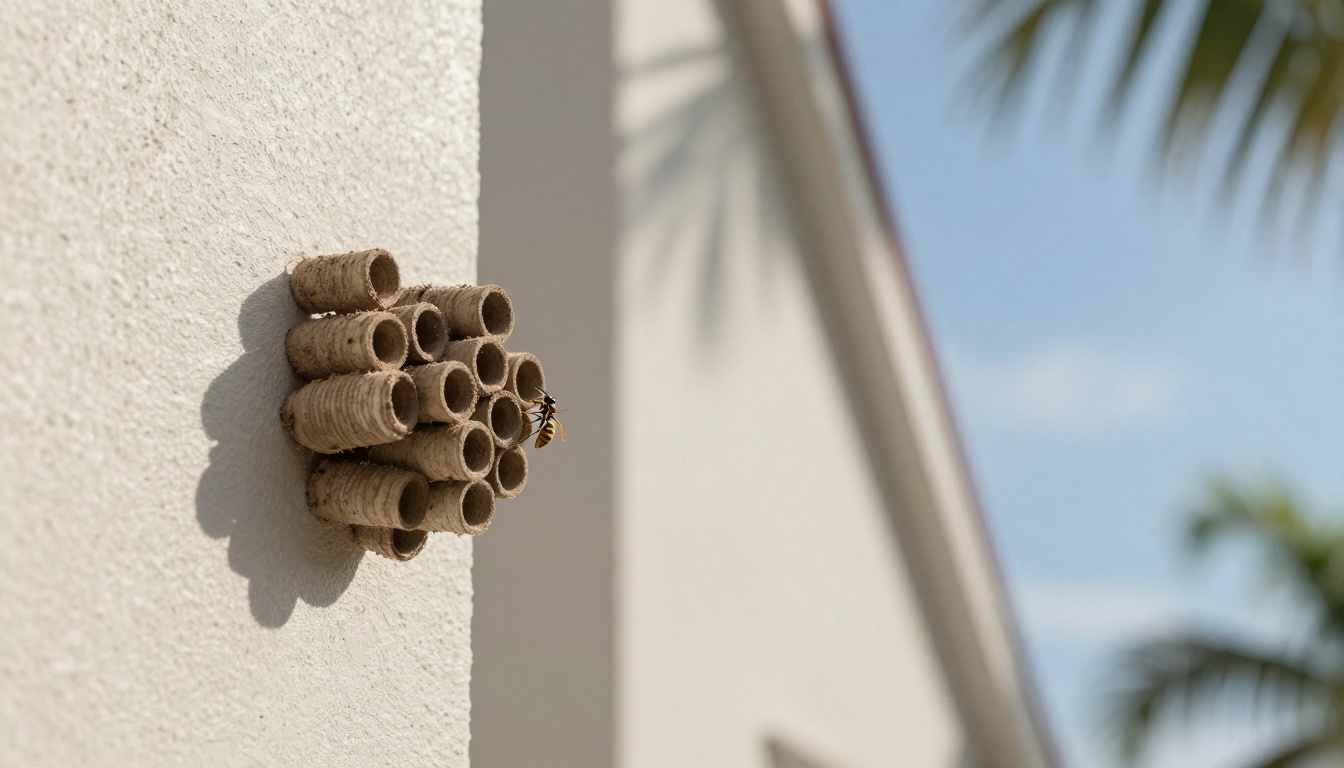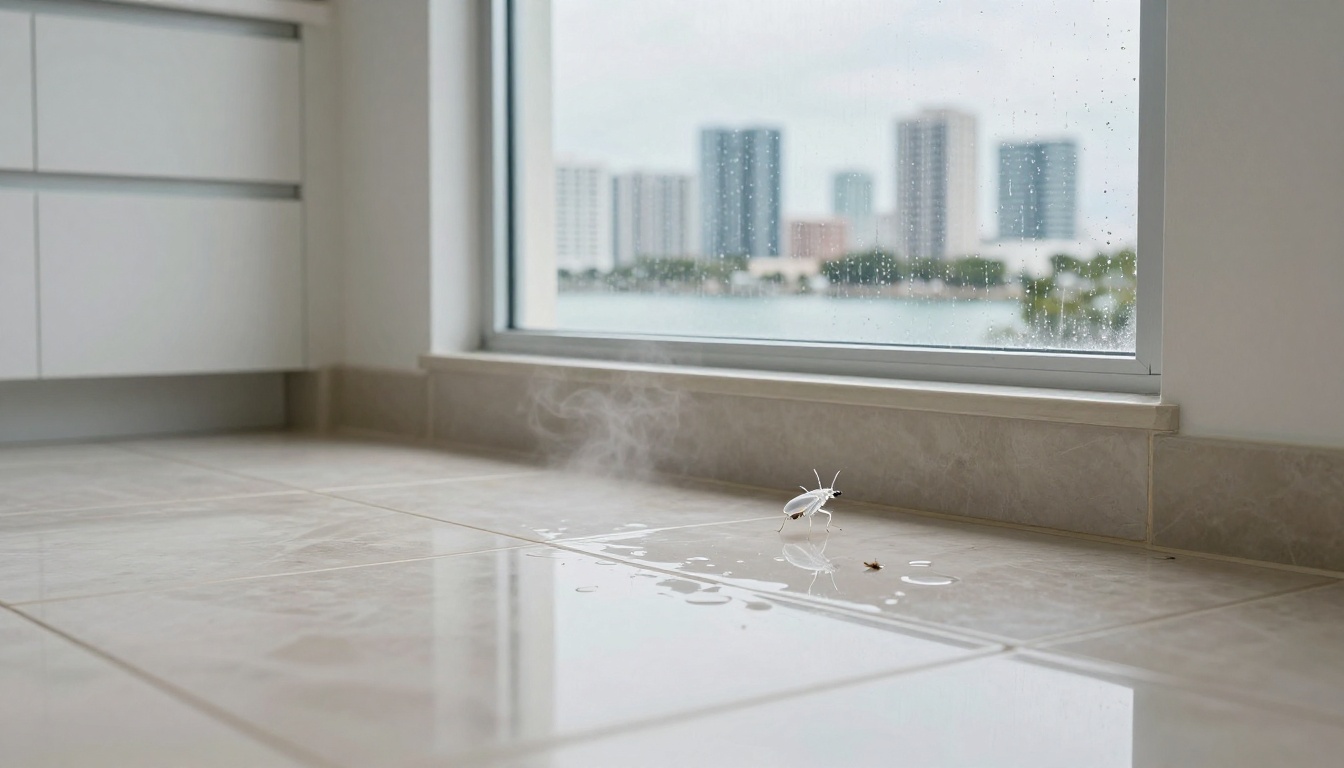Maintaining Compliance: How Professional Pest Control Helps Florida Businesses Meet Health and Safety Standards
Maintaining Compliance: How Professional Pest Control Helps Florida Businesses Meet Health and Safety Standards
Introduction: Why Compliance and Pest Control Matter for Florida Businesses
In Florida, maintaining compliance with health and safety standards is not just a recommendation—it’s a legal requirement. The state enforces strict regulations to ensure businesses protect public health and uphold hygiene standards. These rules are particularly important in industries like food service, healthcare, and hospitality, where pests can pose significant risks. Non-compliance can result in hefty fines, business closures, or even permanent damage to a company’s reputation. For Florida businesses, staying on top of commercial pest control is essential to avoid these consequences.
Pests such as rodents, cockroaches, and flies are more than just nuisances—they can spread diseases, contaminate products, and create hazardous environments. For example, a restaurant infested with cockroaches could quickly lose customers and fail health inspections. Similarly, a hotel dealing with bedbugs might see a sharp decline in bookings. By prioritizing professional pest control , businesses can safeguard their operations while ensuring they meet Florida’s stringent health and safety requirements. This sets the stage for understanding why pest control is critical for long-term success.
Overview of Florida Pest Control Regulations and Health Standards
Florida has established comprehensive regulations to govern pest control activities. Chapter 482 of the Florida Statutes outlines the licensing, operation, and enforcement standards for pest control businesses and operators. These laws are enforced by the Florida Department of Agriculture and Consumer Services (FDACS), which ensures that pest control practices are safe, effective, and environmentally responsible. The regulations aim to protect both businesses and the public from the dangers posed by pests and improper pest management techniques.
The purpose of these regulations is clear: to minimize health risks and maintain sanitary conditions across all sectors. Pests can carry diseases like salmonella, E. coli, and Lyme disease, making them a direct threat to public health. By mandating proper pest control methods, Florida ensures that businesses operate in a way that prioritizes safety and cleanliness. Understanding these laws is the first step toward achieving compliance and avoiding potential penalties.
Types of Pest Control Licenses and Certifications Required in Florida
In Florida, businesses offering pest control services must hold specific licenses, while individual operators need certifications. A business license allows a company to legally provide pest control services, while operator certificates are issued to individuals who perform pest management tasks. Operators are categorized into different classes based on their expertise, such as structural pest control, lawn and ornamental pest management, or fumigation. Each category requires specialized training and testing to ensure competency.
Both business licenses and operator certificates must be renewed annually to remain valid. Renewal requirements include completing continuing education courses to stay updated on industry best practices and regulatory changes. This system ensures that licensed professionals are equipped with the latest knowledge and skills to handle pest issues effectively. For businesses, partnering with certified providers like Shield Pest Control Solutions guarantees compliance with these rigorous standards.
Consequences of Non-Compliance: Legal, Financial, and Operational Risks
Failing to comply with Florida’s pest control regulations can lead to severe consequences. Legal penalties may include fines ranging from hundreds to thousands of dollars, depending on the severity of the violation. In extreme cases, businesses may face temporary or permanent shutdowns if they repeatedly ignore compliance requirements. Beyond financial losses, non-compliance can tarnish a company’s reputation, leading to lost customers and diminished trust within the community.
Operationally, businesses may struggle to recover from the fallout of non-compliance. For instance, failing a health inspection due to pest issues can disrupt daily operations and cause revenue losses. Additionally, repeated violations might result in the revocation of business licenses, making it impossible to continue operating legally. To avoid these risks, businesses should prioritize professional pest control services that ensure adherence to all regulatory requirements.
The Role of Professional Pest Control in Achieving and Maintaining Compliance
Professional pest control plays a vital role in helping businesses achieve and maintain compliance with Florida’s health and safety standards. Licensed experts use approved methods and materials that align with state regulations, ensuring that pest management efforts are both effective and lawful. These professionals also stay informed about the latest industry trends and regulatory updates, allowing them to adapt their strategies accordingly.
Beyond treatment, professional pest control providers offer valuable documentation and reporting services. They maintain detailed records of inspections, treatments, and outcomes, which are essential for audits and compliance verification. By partnering with a trusted provider like Shield Pest Control Solutions, businesses can streamline their compliance processes and focus on their core operations without worrying about pest-related issues.
How Pest Control Supports Health Department and Industry-Specific Compliance
Pest control programs are integral to passing health department inspections and meeting industry-specific guidelines. For example, restaurants must adhere to strict sanitation protocols to pass inspections conducted by local health departments. A single pest sighting can lead to a failed inspection, jeopardizing the establishment’s ability to operate. Similarly, healthcare facilities must prevent pest infestations to protect patients and comply with federal and state health standards.
Different industries face unique pest challenges. In food service, rodents and cockroaches are primary concerns, while hotels must guard against bedbugs. Professional pest control providers tailor their services to address these specific needs , implementing targeted strategies that align with industry requirements. For example, specialized vacation rental pest control is crucial for the hospitality sector. By doing so, they help businesses maintain compliance and uphold their reputations as safe, reliable establishments.
Best Practices for Selecting a Licensed Pest Control Provider in Florida
Choosing the right pest control provider is crucial for ensuring compliance and protecting your business. Start by verifying that the provider holds all necessary licenses and certifications from the Florida Department of Agriculture and Consumer Services. Look for companies with extensive experience in your industry, as they will understand the unique challenges you face. Request references or case studies to evaluate their track record and reliability.
When interviewing potential providers, ask about their approach to compliance support. Inquire whether they provide detailed documentation, regular inspections, and ongoing training for your staff. Questions like “How do you handle emergencies?” or “Can you assist with audit preparation?” can help you gauge their level of expertise. Partnering with a reputable provider like Shield Pest Control Solutions ensures that your business remains compliant while benefiting from top-tier pest management services.
Documentation, Record-Keeping, and Inspections: What Florida Businesses Must Track
Florida law mandates that businesses maintain specific records related to pest control activities. These include logs of inspections, treatment schedules, chemical usage reports, and certificates of compliance. Accurate record-keeping is essential for demonstrating adherence to regulations during audits or inspections. Without proper documentation, businesses risk being cited for non-compliance, even if they have implemented effective pest control measures.
Professional commercial pest control services simplify this process by handling documentation on behalf of businesses. Providers like Shield Pest Control Solutions offer digital record-keeping systems that organize and store all necessary information securely. This not only saves time but also ensures that businesses are fully prepared for any regulatory review. With expert assistance, maintaining compliance becomes a seamless part of daily operations.
Employee Training and Awareness: Building a Culture of Compliance
Employee training is a cornerstone of maintaining compliance with pest control regulations. Staff members should be educated on identifying signs of infestations, implementing preventive measures , and adhering to regulatory requirements. Regular workshops and updates provided by professional pest control companies can keep employees informed and engaged. When staff members understand their role in pest prevention, they contribute to a culture of compliance that benefits the entire organization.
Responding to Violations and Remediation through Professional Pest Control
If a business receives a citation for pest control violations, immediate action is required to address the issue and prevent future occurrences. Professional pest control providers can conduct thorough inspections to identify the root cause of the problem and implement remediation strategies. Their expertise ensures that corrective actions align with regulatory standards, reducing the risk of further penalties. By acting swiftly and partnering with qualified professionals, businesses can restore compliance and protect their operations.
Integrating Pest Control into a Broader Health and Safety Strategy
Pest control should be viewed as an integral component of a broader health and safety strategy. It works hand-in-hand with sanitation practices, facility maintenance, and employee training programs to create a comprehensive approach to workplace safety. By integrating pest control into these efforts, businesses can enhance their overall compliance posture and create safer environments for employees and customers alike.
Future Trends: Evolving Standards and Technology in Florida Pest Control Compliance
As technology advances, so too do the tools and methods available for pest control. Innovations such as eco-friendly pesticides, remote monitoring systems, and AI-driven analysis are transforming the industry. These advancements promise greater efficiency and sustainability, helping businesses meet evolving compliance requirements while minimizing environmental impact. Staying informed about these trends will be key to maintaining compliance in the years ahead, and you can find more information on our blog.
Frequently Asked Questions (FAQ) About Pest Control Compliance in Florida Businesses
-
What licenses are required for a Florida business to offer pest control services?
To offer pest control services in Florida, a business must obtain a license from the Florida Department of Agriculture and Consumer Services (FDACS). Additionally, individual operators must hold certification in their specific category, such as structural pest control or fumigation. These credentials ensure that providers are qualified to deliver safe and effective pest management solutions.
-
How often do pest control licenses need to be renewed in Florida?
Pest control licenses and operator certificates in Florida must be renewed annually. Renewal involves completing continuing education courses to stay current with industry developments and regulatory changes. This process ensures that licensed professionals maintain high standards of expertise and service quality.
-
What are the penalties for non-compliance with Florida pest control regulations?
Non-compliance with Florida pest control regulations can result in significant penalties, including fines, late fees, and operational shutdowns. Businesses may also suffer reputational harm , losing customer trust and market share. To avoid these consequences, it’s essential to partner with certified providers who prioritize regulatory adherence.
-
How can professional pest control help me pass a health inspection?
Professional pest control providers assist businesses in passing health inspections by delivering consistent treatments, maintaining detailed documentation, and offering expert guidance on compliance requirements. Their proactive approach ensures that businesses are always prepared for inspections, reducing the risk of violations.
-
Do all pest control providers in Florida need to be licensed?
Yes, all pest control providers in Florida must be licensed by the FDACS. Hiring unlicensed companies poses significant risks, including substandard service and potential legal liabilities. Working with certified professionals ensures that businesses receive reliable and compliant pest control solutions.
Conclusion: The Value of Professional Pest Control for Compliance and Business Success
Professional pest control is indispensable for Florida businesses seeking to maintain compliance with health and safety standards. It offers legal protection, prevents costly penalties, and safeguards reputations by addressing pest issues effectively and responsibly. By partnering with certified providers like Shield Pest Control Solutions, businesses can ensure they meet all regulatory requirements while focusing on growth and success.
Now is the time for Florida businesses to review their pest control strategies and consider working with a qualified professional. Doing so not only protects against pests but also strengthens overall compliance efforts. Key takeaways include the importance of licensing, the risks of non-compliance, and the value of expert support in achieving long-term success.
Schedule a Free Inspection:
